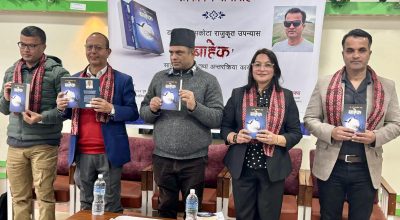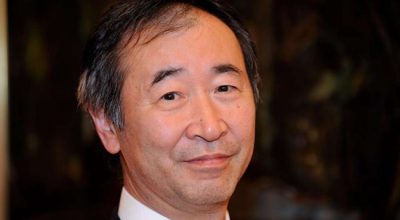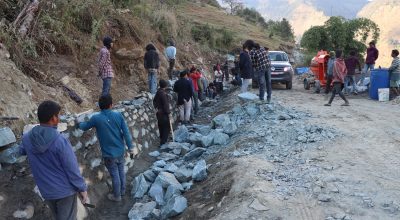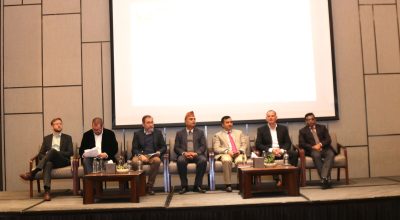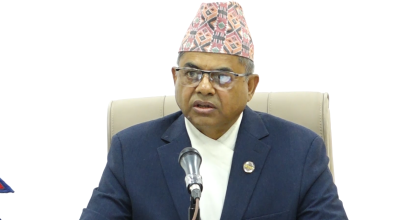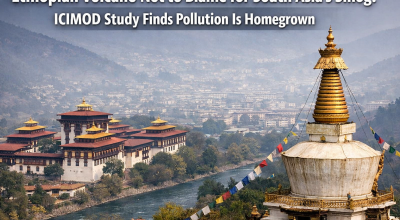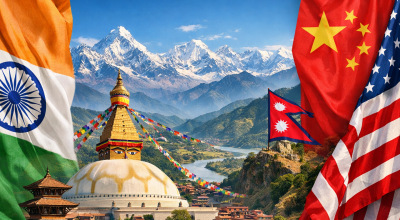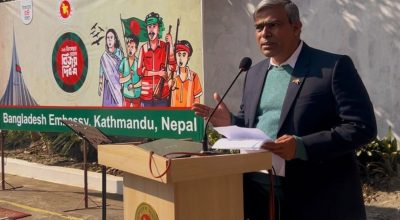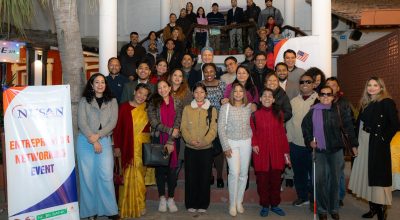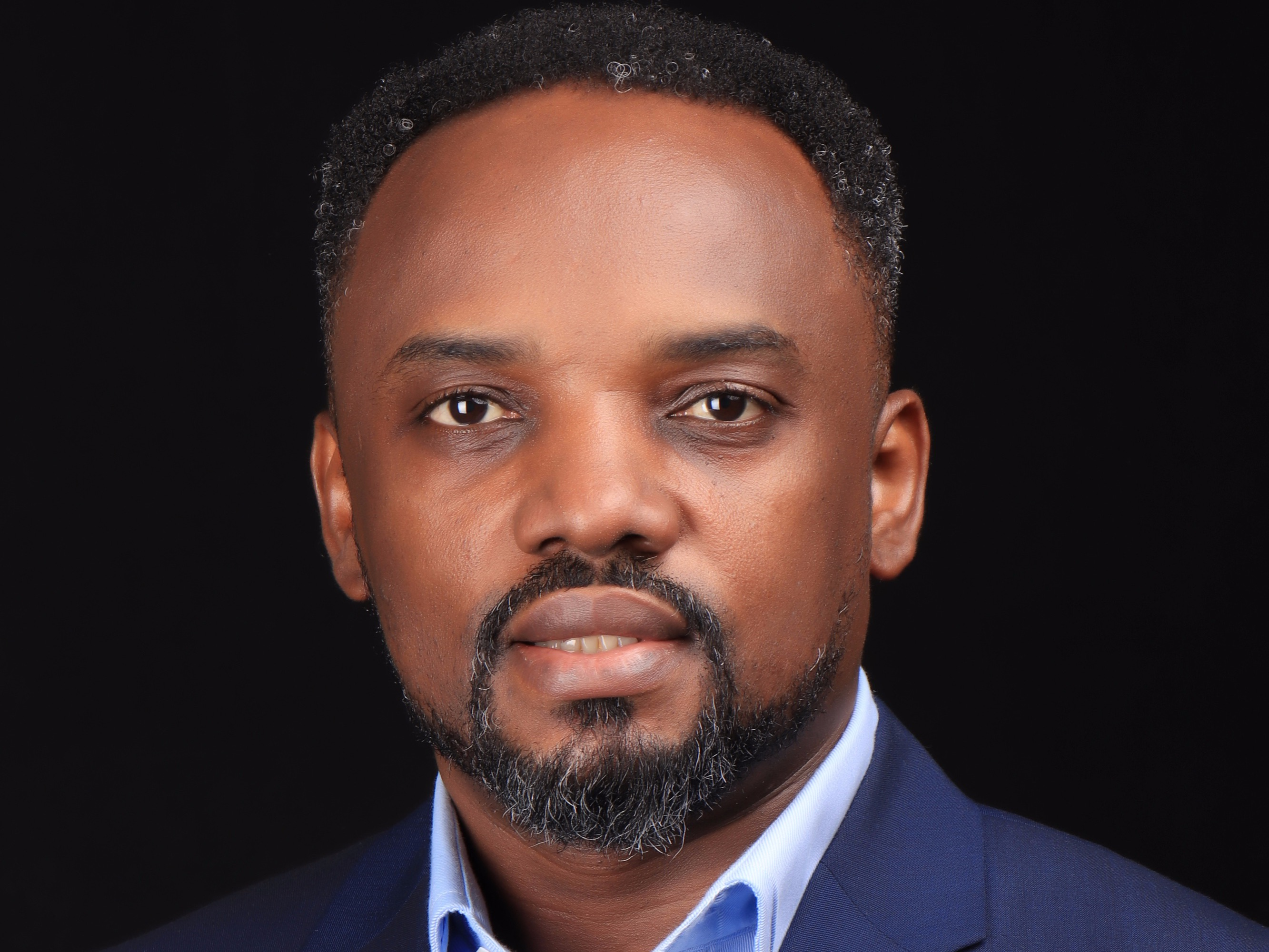
ABUJA – Kicking off the United Nations’ second annual Sustainable Development Goals Moment last month, UNICEF Goodwill Ambassador Priyanka Chopra Jonas emphasized the role of solidarity as a driver of change. “Global solidarity is more important than ever,” she said. “Together, we have an extraordinary opportunity to change the world we live in.”
While Chopra Jonas was referring to the fight against climate change, that sentiment could apply to many other global issues. Solidarity is essential to solving many of humanity’s most pressing challenges. But it is crucial for achieving health security.
And after two and a half years of COVID-19, the world’s health systems are coming apart at the seams. While the end of the pandemic may be in sight, the virus is still raging. Moreover, monkeypox has been officially declared a Public Health Emergency of International Concern, and cases of vaccine-derived poliovirus have been documented in over 30 countries, including the United States and the United Kingdom. At a time when infectious diseases can spread around the world within hours, global solidarity matters more than ever.
What this means is straightforward. People living along the path of an approaching wildfire must work together to extinguish it. The same goes for global health security. In 1966 – at the height of the Cold War – the United States teamed up with the Soviet Union to end smallpox and measles. This collaboration, in turn, encouraged the WHO to lead the eradication program.
There are important lessons to be learned from this history. For starters, global health solidarity may lead to unexpected alliances. The US and the Soviet Union were rival superpowers, yet they bracketed the Cold War to eradicate a disease that had affected humanity for over 3,000 years.
Moreover, putting the WHO, a global organization, in charge ensured that the smallpox vaccine was freely available to every country, without richer countries hoarding doses. The last case of smallpox was identified in Somalia in 1977, ten years after the program began, and the WHO declared the disease eradicated three years later. The entire effort cost $300 million, but it is estimated to have saved over $1 billion per year.
Polio is another disease that is close to eradication thanks to a coordinated global effort. Rotary International – which has 1.4 million members worldwide – launched a campaign to immunize children around the world against polio in 1985. Three years later, the Global Polio Eradication Initiative was established at the WHO’s World Health Assembly. Many countries joined the initiative, contributed funds, and mobilized agencies and communities. In the 34 years since its founding, GPEI has reduced the global incidence of polio by more than 99%, prevented paralysis in more than ten million people, and immunized 2.5 billion children.
We seem to have forgotten these lessons. In contrast to the concerted global push to end smallpox and polio, the response to COVID-19 has been characterized by nationalist parochialism. The pandemic is a global calamity that has killed more than six million people, in addition to afflicting at least 100 million with so-called long COVID. But this time, instead of coordinating their responses, developed countries focused on mitigating its impact within their borders. Rich Western countries adopted a siege mentality, hoarding personal protective equipment, vaccines, and drugs, and leaving poorer countries to settle for crumbs.
Africa, on the other hand, initiated the world’s best-coordinated response to COVID-19, by marshaling the resources of regional institutions like the African Union and fostering local partnerships. Addressing a pandemic like COVID-19 requires this level of cooperation on a global scale.
The COVID-19 Vaccine Global Access (COVAX) facility was meant to be a coordinating mechanism to help galvanize the worldwide vaccination effort and ensure that lower-income countries could access vaccines. But COVAX has faced constant funding gaps and struggled to acquire doses. In a recent interview, Harris Gleckman, the former Chief of the New York Office of the UN Conference on Trade and Development, argued that COVAX enabled corporate interests to use UN processes to safeguard their profits, with little regard to the social costs.
Simply put, vaccine nationalism killed vulnerable people. Mike Whelan of the Coalition for Epidemic Preparedness Innovations – a foundation that helped launch COVAX – acknowledged this in a recent panel discussion.
The response to monkeypox is another example of how vaccine nationalism harms global health security. African countries have been battling monkeypox for decades, but the disease did not attract international attention until cases started appearing in the West. Nigeria’s first case was reported in 1972, and cases have been detected there every year since 2017. Yet even as people are being vaccinated against the disease in developed countries, African countries are still waiting for their doses.
The chance to do better is right around the corner. Health authorities in Uganda have recently declared an Ebola outbreak after a case was confirmed in the country’s Mubende district. Global solidarity is necessary to contain this outbreak. Higher-income countries must take the lead in developing detection and response mechanisms. And global institutions like the UN and the WHO must counter nationalism by promoting equity.
Together, we can defeat disease outbreaks before they spiral. On our own, it is always much harder. As an Igbo proverb says, when your house is on fire, do not hunt for rats.
Ifeanyi M. Nsofor, a Senior New Voices Fellow at the Aspen Institute, is a Global Atlantic Fellow for Health Equity at George Washington University and an Innovation Fellow at PandemicTech.
Copyright: Project Syndicate, 2022.
www.project-syndicate.org





